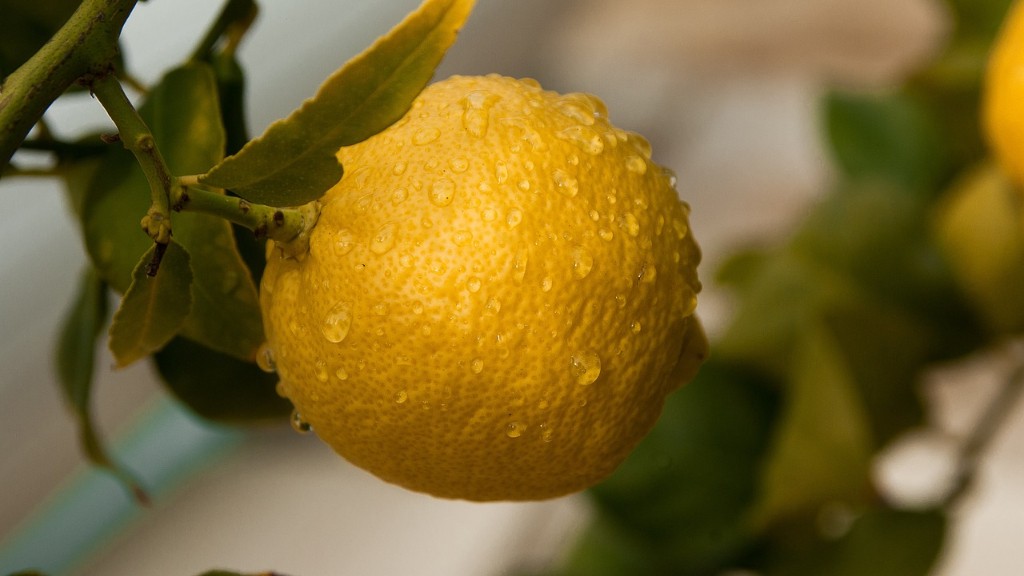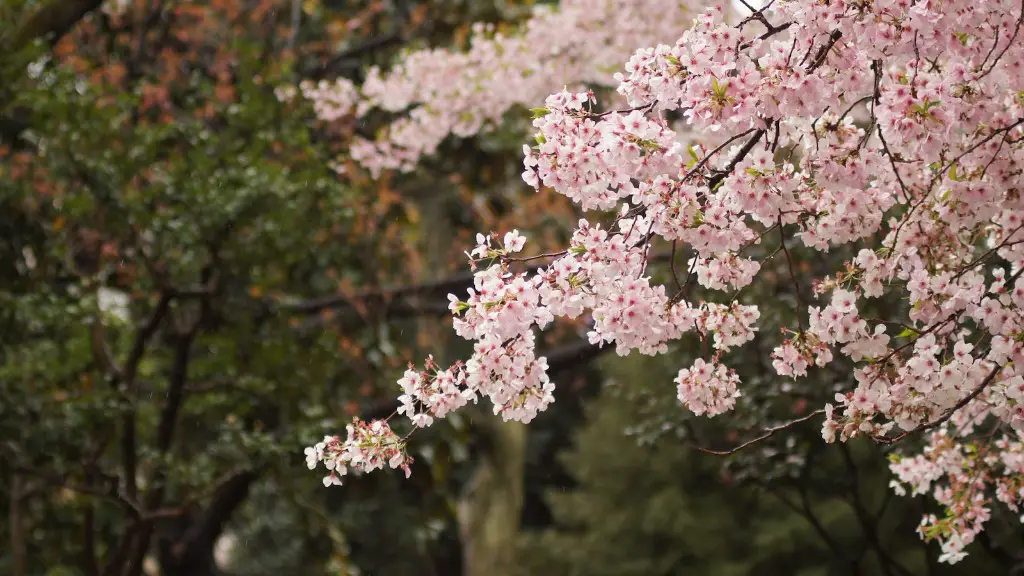Bugs on lemon trees can reduce the vitality of a tree and the quality of lemons they produce. To help you get rid of the pests, here’s how to go about it:
Firstly, check your lemon tree and identify the type of pest. You’ll find many types of bugs on lemon trees, so it’s best to identify the one(s) affecting your tree. Common pests include aphids, mealybugs, scale, whiteflies and mites.
Secondly, employ necessary preventative measures. Make sure your tree is getting enough water, that it’s getting adequate sunlight, and is placed in well-drained soil. This will help to reduce the attractiveness of your lemon tree to potential pests.
Thirdly, use natural pests control methods. Natural methods of pest control include neem oil, garlic spray, horticultural soap, or lady bugs. All of these methods are non-toxic to humans and relatively safe for the environment.
Fourthly, if necessary, manually remove the pests. If natural methods of pest control are not enough, you may have to manually remove the pests. This can be done either by handpicking or using a cotton swab dipped in rubbing alcohol.
Fifthly, apply insecticides (if needed). In some cases, natural methods and manual removal of pests may not be enough. In these instances, you may have to resort to using insecticides. However, it is important to note that these can be harmful to the environment, so it’s best to proceed with caution.
Lastly, be sure to regularly monitor your lemon tree. Be sure to regularly monitor your tree for signs of pests. This will help you to identify any new pest problems and take steps to address them before they become worse.
De-Stressing the Plant
In addition to controlling the pests, you should also take steps to reduce any stress to your lemon tree that may be caused by the pests. Stress in plants can weaken their immunity and make them more susceptible to pests or disease. Here are a few tips to reduce stress in your lemon tree:
Firstly, ensure that your lemon tree is getting adequate water, sunlight, and well-drained soil. This will keep your plant healthy and reduce the stress it experiences.
Secondly, prune your lemon tree regularly. Pruning will help to shape the plant and reduce the risk of pests taking hold. It is best to prune your lemon tree early in the spring before the sap has started to flow.
Thirdly, apply fertilizer in moderation. Fertilizers are great for helping plants grow, but they can be harmful if applied in too high of a quantity. Stick to the recommended dosage or talk to a local nursery for advice.
Fourthly, keep weeds away from the tree. Weeds can compete with your lemon tree for resources such as sunlight, water, and nutrients. Keeping them away from your tree will reduce the stress it experiences.
Fifthly, be sure to regularly monitor your lemon tree for signs of stress. If you see any visible signs of stress, such as yellowing leaves, stunted growth, or wilting, then take the necessary steps to address it.
Regular Maintenance
Besides controlling pests, it is important to regularly maintain your lemon tree. Regular maintenance will help to keep your tree healthy and reduce the chances of pests becoming a problem. Here are a few tips to help you with regular maintenance:
Firstly, use a fertilizer specifically designed for citrus trees. This will help to give your tree the necessary nutrients it needs. Be sure to follow the directions carefully when applying the fertilizer.
Secondly, inspect your tree for signs of disease. Diseases can quickly spread so it’s important to check your tree regularly for any sign of illness. If you find anything, get help from a local nursery to take the necessary steps to address the issue.
Thirdly, prune your lemon tree regularly. Pruning will help to keep the tree in shape and improve air circulation, which is important for the health of the tree.
Fourthly, mulch your tree. Mulching will help to retain moisture and reduce soil erosion. It is best to use organic mulch such as compost or wood chips.
Fifthly, water your tree regularly. Be sure to give your tree enough water, but not too much. Overwatering can cause root rot and other issues.
Getting rid of Diseased Fruit
If you find any diseased or damaged fruit on your lemon tree, it is best to remove them immediately. Diseased fruit can spread the disease among other healthy fruits on the tree. Here are a few tips to help you get rid of diseased fruit:
Firstly, use pruning shears to cut off the diseased fruit. Make sure to disinfect your pruning shears before and after use to reduce the risk of spreading the disease.
Secondly, dispose of the diseased fruit in an appropriate manner. It’s best to wrap the fruit in a plastic bag and throw it away in the trash. Do not compost the diseased fruit, as this could spread the disease to other plants.
Thirdly, clean the area around the fruit. Clean up any fallen leaves or twigs that may have been infected by the disease. Apply a fungicide if necessary.
Fourthly, water the tree. Be sure to give your tree adequate water to help it recover from the disease.
Fifthly, monitor the tree regularly. Regularly check the tree for signs of the disease and take the necessary action if needed.
Early Detection of Disease
The best way to get rid of pests and diseases on lemon trees is to detect them early. Here are a few tips to help you detect diseases early:
Firstly, check your tree regularly for signs of disease. This can be anything from yellowing leaves to wilting or stunted growth. Identify the disease and take the necessary steps to address it before it spreads.
Secondly, inspect your tree for pests. Look for any signs of pests such as whiteflies, aphids, scale, mealybugs, or mites. Identify the pest and take the necessary steps to get rid of them.
Thirdly, have your lemon tree tested by an expert. Professional experts can detect diseases and pests early on and recommend ways to address the issue. This can help you to get rid of bugs or disease before they become a major problem.
Fourthly, check your tree for any signs of damage. Damage to the tree can be caused by pests or disease. Identify the cause and take steps to address it before it becomes worse.
Fifthly, take preventive measures. Prevention is always better than cure. Be sure to regularly maintain your lemon tree by providing the necessary water, sunlight, fertilizers, and mulch to help keep it healthy and reduce the attractiveness to pests.





